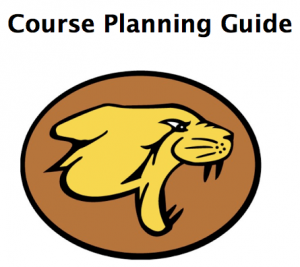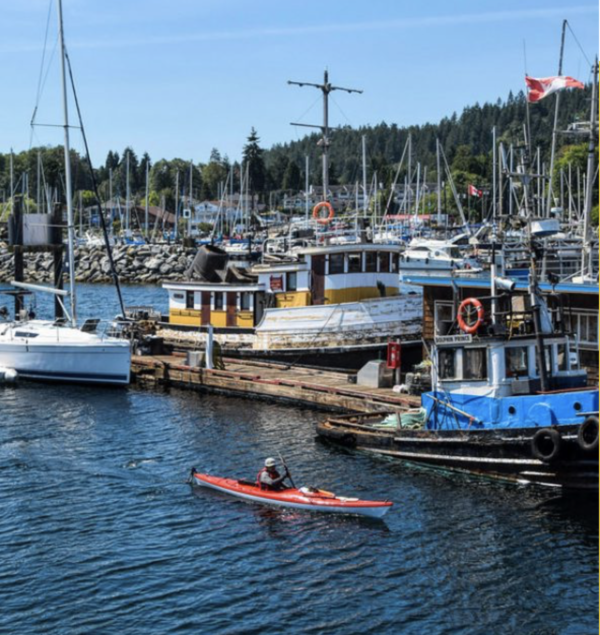 Course planning usually begins after winter break with a parent night, counsellors’ visits to classes, students selecting their choices, the principal building the timetable, the school board setting a budget based on the Ministry of Education funding, the principal revising the timetable as needed, and the counsellors trying to address timetable conflicts. We do our best to fit your choices into the timetable that is built.
Course planning usually begins after winter break with a parent night, counsellors’ visits to classes, students selecting their choices, the principal building the timetable, the school board setting a budget based on the Ministry of Education funding, the principal revising the timetable as needed, and the counsellors trying to address timetable conflicts. We do our best to fit your choices into the timetable that is built.
2023 Course Planning Evening: January 25 @ 6pm (Grades 9 into Grade 10) and 7pm (Grades 10/11 into Grades 11/12)
Course Planning Booklet: 2023-24 Course Selection Database
Grade 8 to 9 Course Planning – Grade 8s continue with the same required courses: English 9, Social Studies 9 (Combined as Humanities 9), Math 9, Science 9, PHE 9. French becomes an elective in grade 9. Band has been in mornings before school. See below for information to help with your decision regarding French. Other electives will be chosen in June.
Grade 9 to 10 Course Planning – Grade 10 is the beginning of the graduation program, which means grade 10 courses count toward graduation. Grade 10 is semestered for most courses, with the exception of PHE10 and one other course. This year the linear course with PHE was an English 10 (students have choices for their grade 10 and 11 English classes). Math (students have two choices for math – please see below for more information), Science, Social Studies and electives are every day for one semester and not in the other semester. Career Life Education 10 is offered online through the school with support from an ESS teacher. Students in grade 10 write the Numeracy and Literacy Assessments, which are required for graduation.
Course Planning for Grade 11 and 12: Grade 11s and 12s have more choice in the courses they take to meet their graduation requirements. Students’ choices should be guided by their interests, abilities, and post-secondary goals. All courses are semestered except off-timetable courses. Students are required to write a Numeracy Assessment and two Literacy Assessments (one in grade 10 and the other in grade 12) in order to graduate.
Required courses for grade 11s: an English 11, a Social Studies 11 or 12, a Math 11, a Science 11 or 12, Career Life Connections, and the Numeracy and Literacy Assessments if not completed in grade 10.
Required courses for grade 12s: an English 12, three other grade 12 electives, Career Life Connections if it was not completed in grade 11, the Literacy and Numeracy Assessments if not already completed in grade 10, and the Literacy Assessment 12.
Post-Secondary Guidelines/Samples – Below are some rough guidelines for what to take in grade 11 and 12. Please check the PSI sites to confirm.
For all: English Studies 12 or English First Peoples 12
Arts: at least three other academic grade 12 courses (UVic and others). At least five grade 12 courses overall for SFU & at least six overall for UBC. Please see the post-secondary institutions’ website to see which courses are accepted.
Fine Arts, such as Music, Art, Drama: Watch for audition dates & requirements. National Portfolio Day is helpful and occurs before the winter break. Kwantlen University has hosted the past two years, but art schools from all over attend.
Sciences: Pre-Calculus 11 & 12, Chemistry 11, Physics 11, two other grade 12 sciences. Calculus 12 is recommended. SFU requires five grade 12 courses & UBC requires six, but they don’t all have to be academic.
Business: Pre-Calculus 11 & 12, Calculus 12 recommended. Other academic grade 12 courses. Many require four academic grade 12 courses; UBC requires six grade 12 courses & SFU requires five (but not all are necessarily academic)
Engineering: Pre-Calculus 11 & 12, Chemistry 11 & 12, Physics 11 & 12. Calculus 12 is recommended. Again, six grade 12 courses for UBC & five for SFU.
Nursing: Programs vary & many do not accept students from high school. Life Sciences 11, Anatomy and Physiology 12, Chemistry 11 (& 12 for some schools), Foundations of Math 11 or 12 or Pre-Calculus 11 or 12, depending on the program. Other applicable courses such as Psychology may be beneficial.
IT & Trades: Many opportunities at many different schools, but requirements vary. Some computer science programs are in the Faculty of Science, so see those requirements.
Most teaching programs, Law, Medicine, Dentistry: require post-secondary coursework for admission.
Other: There are so many other post-secondary and career programs to choose from. Go to open houses, take campus tours, talk to people, make use of your career planning courses, and use the search engines below to help find ideas.
From the Ministry of Education
Here are two PDF files from the B.C. Ministry of Education. One is a parents’ guide to the graduation requirements. The other is a booklet on the graduation requirements. On p. 15 you will find the list of courses & credits need to graduate.
graduation-implementation-guide
Decisions about French or other languages 
When considering whether or not to continue with French, post-secondary institution requirements may be part of your decision. It is important to see the websites of the schools you are considering and be aware that post-secondary institutions change their requirements over time. The BEST way to keep all your doors open is to continue with French; however, there are still many options if you decide not to continue.
If you enjoy French and want to contribute to the class and learn the language, you should continue. If you dislike French and do not want to be there, it is best to either not take it or change your way of looking at it so that the experience will be better.
We have offered languages other than French in the past, but whether this will happen depends on teacher availability and student course requests. Students may also take languages online if they are interested in a language other than French.
Here are some examples of PSI requirements for languages from BC. Please check their sites as this information changes. UBC Vancouver – grade 11 language required for direct entry into any first year program (for languages other than French, this usually means an introductory course and another course); UBC Okanagan – no language requirement for any faculty; SFU – at least a beginner language 11 is required for entry into any first year program; UVic – no language requirement for any faculty (except for fine arts, where language 11 is an option to meet requirements).
Math Choices 
All grade 8s and 9s take math, but in grade 10 students have a choice between Workplace Math 10 and Foundations of Math and Pre-Calculus 10. Students who choose Workplace Math 10 must continue into Workplace Math 11 while students who take FMPC10 have a choice between Foundations of Math 11 or Pre-Calculus 11. Again, choices should be guided by interest, ability, and post-secondary ambitions. Generally, if you can do the higher level of math, you should do it to keep your options open. If you are unsure, ask your math teacher and keep graduation as your primary focus. Please see the course planning guide above for new math options in grade 11 and 12, including courses such as Statistics 11 and 12, Calculus 12, and other courses which may also meet the grade 11 math requirement. It’s important to look to post-secondary institution websites to see which math is required.
Trades
– Please see this link to find out about SD 46 Trades and Career Programs and more! https://career-programs.sd46.bc.ca
– Trades include a wide area of professions (carpentry, metal work, electrical, plumbing, culinary arts, hair, pipefitting, welding etc.). To get into electrical, welding etc., you must work as an apprentice for a set number of hours. You and your employer register with the ITA – Industry Training Authority – http://www.itabc.ca/. As well as work experience, apprentices do course work. For example, for electrical there is 6000 hours of work, four courses of two and a half months each and a final exam in order to obtain a red seal. Admission to trades programs is often based on specific courses with C to C+ marks required. There are often wait lists. Many schools offer programs. For example, some programs include electrical, sheet metal, food technology, boilermaker, machinist, computer hardware, aerospace, discover trades programs, culinary, auto, horticulture, plumbing etc. Many programs are first come, first served. Many applications open Oct. 1. Use the search engines below to help you find the right school for you. Check admission requirements to ensure you have the courses and marks that you need. Trades training BC is an excellent website for more information: www.tradestrainingbc.ca. Also, the ITA site above has a list of apprenticeable trades in BC: http://www.itabc.ca/discover-apprenticeship-programs/search-programs. Another good resource with lots of trades information is http://www.discovertradesbc.ca/. Learn now bc has a section about trades programs available in BC high schools: http://www.learnnowbc.ca/trades/TradesFinder.aspx. In addition, here are some other things you can do if you’re interested in the trades: try to make connections locally, take a work experience block or a secondary school apprenticeship, take courses at Elphi that are related to the trades you wish to go into, and try Cool School.
Career & School Searches Education Planner is a helpful website that can guide you to post-secondary programs in B.C. Search according to your topic of interest and all kinds of interesting things will come up: www.postsecondarybc.ca, www.educationplannerbc.ca, and myblueprint.ca, are other useful websites that students should be familiar with.
Work BC is a searchable database of occupations & information: http://www.workbc.ca/. Private career training institutions can be searched through: http://www.pctia.bc.ca/. Career Cruising is another site that can help you with career and post-secondary searches across Canada. School finder is another site available online: http://www.schoolfinder.com/ as is educationplanner.org. For careers related to the environment, see http://www.eco.ca. Check out this site if you’re interested in art careers: http://www.studentartguide.com/articles/art-careers-list Some more sites that try to connect education and career are below: Careers with Bachelor of Arts Degree, Science Degree, Business Degree: http://www.academicinvest.com/arts-careers, http://www.academicinvest.com/science-careers, http://www.academicinvest.com/business-careers Some programs and careers are open only to students who have a year or two of post-secondary studies. For example, some policing careers are open to those without university degrees, but they like to see some post-secondary and life experience. Many nursing programs do not accept students straight out of high school, but they provide certain courses they’d like you to take. Law, education, dentistry, medicine are examples of programs where you must do post-secondary first, with certain pre-requisites. Other than the pre-requisites, your job is to get good marks, so study something that you’re interested in and see where it leads. If you love what you’re studying, you’re more likely to get better marks, which will help you get in to the program you want. Trades – see our Trades page for more info.
